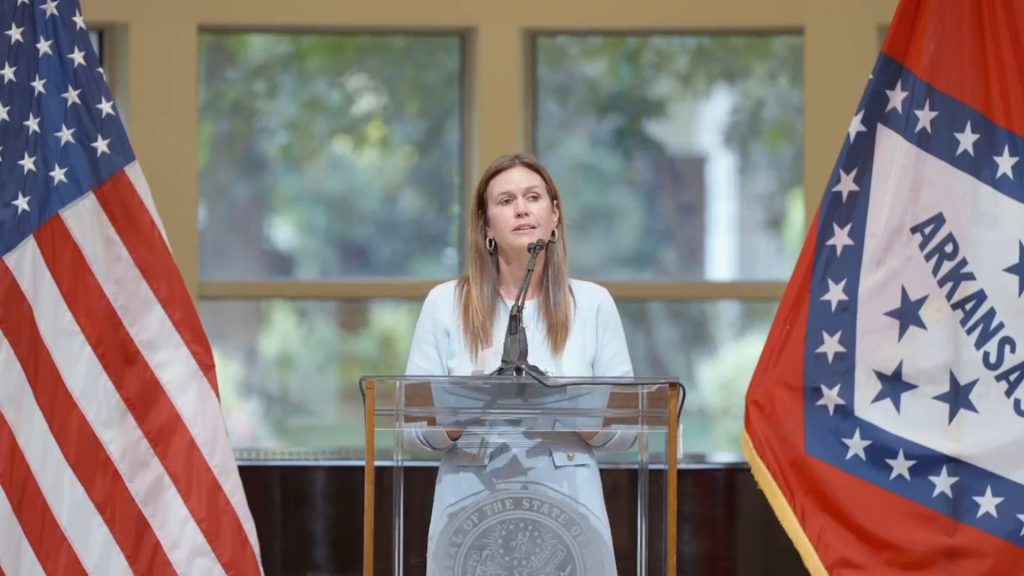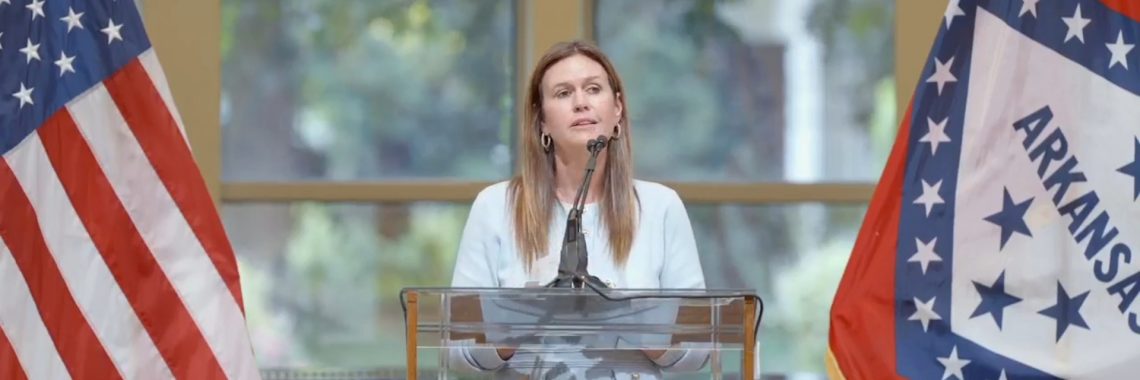Governor Invites Churches, Faith Leaders to Participate in Pilot Program to Address Poverty in Arkansas

On Monday, Governor Sanders announced a pilot program that will partner with Arkansas’ faith and business communities to address poverty and other challenges in Arkansas.
The 10:33 Initiative by Governor Sanders’ Office of Faith-Based Initiatives is designed to “lift Arkansans out of poverty and improve their long-term self-sufficiency by connecting them with faith and community partners who can meet their immediate needs and help guide them toward a prosperous future.”
The name is taken from Jesus’ parable of the Good Samaritan in Luke 10:33.
The 10:33 Initiative will start with a 12-month pilot program in Pulaski, Union, and Pope counties.
The initiative will utilize Restore Hope’s HopeHub, which is a data-sharing platform that connects people in need of assistance with faith and community partners who can help meet those needs. The program will also help meet long-term goals like connecting people with job opportunities, training, and career guidance.
In a statement, Governor Sanders called the 10:33 Initiative “a groundbreaking project carefully curated to give Arkansans a hand up, not a handout.”
We have written many times how Americans often do not fully appreciate how much churches do for their communities. Nationwide, researchers estimate that churches, ministries, and religious charities provide hundreds of billions of dollars worth of services every year. We are glad Governor Sanders recognizes that churches and faith leaders are a resource that can help address many of the problems our communities face.
Arkansans interested in knowing more about the 10:33 Initiative can contact Morgan Warbington at the Governor’s Office of Faith-Based Initiatives by emailing morgan.warbington@governor.arkansas.gov.
A one-page informational flyer about the 10:33 Initiative is also available here.
Articles appearing on this website are written with the aid of Family Council’s researchers and writers.
Marijuana May Harm Fertility, Cause Chromosome Errors: New Study

New research shows that marijuana use may harm female fertility and increase chromosome errors.
The study published last month in Nature Communications looked at health data from women undergoing in vitro fertilization. Researchers found that THC — the main active substance in marijuana — can disrupt egg cell growth, alter important genes, and cause problems with chromosomes.
Women with THC in their system had fewer healthy embryos during IVF compared to women without THC, and eggs exposed to THC were more likely to develop chromosome errors.
This study adds to a growing body of research that shows marijuana is harmful to women and unborn children.
Unfortunately, marijuana use during pregnancy has been shown time and time again to hurt unborn children and newborns.
More generally, marijuana has been tied to a number of deadly heart problems — including heart attack, heart failure, and stroke. In fact, researchers now say marijuana use doubles a person’s risk of death from heart disease. Experts also have found heavy marijuana use is strongly linked to a 325% increased risk of oral cancer.
All of this should be significant to Arkansans, because marijuana industry insiders worked unsuccessfully to expand marijuana in Arkansas via the state’s ballot initiative process in 2022 and 2024. Fortunately, neither of those measures passed.
All of this underscores what we have said for years: Marijuana may be many things, but “harmless” simply is not one of them.
Articles appearing on this website are written with the aid of Family Council’s researchers and writers.



